|
In this episode of Cultivating Health Connections, we delve into the innovative strategies employed by Finger Lakes Community Health and Blue Grass Community Health to enhance healthcare access for agricultural workers and their families. The NCFH 2024 IAC Promising Practice Award winners promising practices that have transformed care delivery in their communities. Join us as we explore the intersection of healthcare and agricultural communities, highlighting initiatives that prioritize inclusivity and improve health outcomes for those who feed our nation.
0 Comments
On behalf of the Board of Directors of the National Center for Farmworker Health (NCFH), it is our privilege to announce that Alicia Gonzales has assumed the role of NCFH President and CEO.
Alicia Joined NCFH in 1997 in a management capacity, steadily moving up within the organization. She assumed the role of Chief Operating Officer in 2019 when Sylvia Partida was appointed as CEO. Sylvia and Alicia have functioned as a cohesive team, successfully leading the organization through the COVID-19 pandemic and other challenges. In late 2023 unforeseen medical issues caused Sylvia to step back from the CEO role. At that time the NCFH Board of Directors appointed Alicia as Acting CEO. Since then, Sylvia has made the difficult decision to take early retirement due to the aforementioned medical reasons. On behalf of the Board, we thank Sylvia for her 24 years of service and her steadfast leadership in advancing NCFHs mission and wish her the best in retirement. She will be sorely missed by everyone in the Agricultural Worker Health community. Although we are saddened by Sylvia's unexpected departure as CEO, we are also grateful that Alicia is ready, willing and able to seamlessly take the helm of the organization. Her 27 years of service, close working relationship with NCFH staff and Board, as well as her keen understanding of the issues relating to agricultural worker health make Alicia the ideal person to lead NCFH into the future. NCFH is a private, not-for-profit corporation dedicated to improving the health status of agricultural workers and their families. We provide information services, training and technical assistance, and a variety of products to community and migrant health centers nationwide, as well as organizations, universities, researchers and individuals involved in ag worker health. Art from the Heart
Listen in to this new episode featuring NCFH’s 2023 selected Artist of the Year, Arcadio Viveros. He shared with us his inspiration for the “Virgen Campesina” art piece, which was unveiled at the annual National Conference for Agricultural Worker Health hosted by the National Association of Community Health. This Commemorative Artwork supports the NCFH Scholarship Program through art sales and assists health center staff in their workforce development and to pursue their educational goals in healthcare. Chime in to hear Arcadio’s story describing his connection to the farmworker population and involvement in the Migrant Health Movement. Be inspired to activate change, like he did, and become a Farmworker Champion today!
Read more about our Commemorative Artwork here and purchase Art from the Heart on our website. 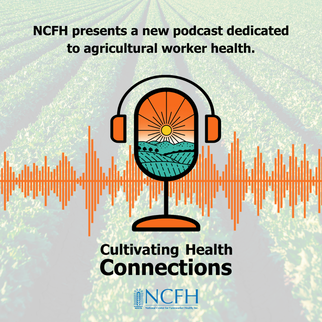
Total Worker Health Training for Employers
Welcome to NCFH's Podcast and 1st episode! This episode is a discussion of agricultural employers and their important role in promoting the health and well-being of farmworkers and their families. We specifically explore the concept of Total Worker Health, which is an occupational health and safety framework from the CDC that is not usually applied to the agriculture industry. We bring together three agricultural employers, a medical doctor who's also a Total Worker Health expert, and the head of the National Council of Agricultural Employers, to discuss how the time and energy needed to make sure farmworkers have proper health care access brings benefits to both the employer and the employees. Read more on Total Worker Health: https://www.cdc.gov/niosh/twh/totalhealth.html A specific note for listeners: at the 34:40 point, one of the speakers makes a claim about COVID-19 test positivity rates between H-2A workers and between the general U.S. population between February and May of 2021. The average positivity rate of H-2A workers who were preparing to come into the United States during that time was indeed 1.3%, according to a study conducted by the CDC with nearly 1,200 H-2A workers. However, the positivity rate of the U.S. population was slightly lower than claimed, fluctuating between 5.9% and 2.2% during the same time period. Sources:
Registration is open! Join us as at the Midwest Stream Forum for Agricultural Worker Health on April 24-26, 2023. This year’s theme, ¡Adelante! Moving Forward with Vision and Strength, focuses on honoring and learning from our past, celebrating the success of today, and continuing to the future together. With community collaboration, strength, and resiliency, we can rise to the challenge together to keep the vision of the Migrant Health Movement at the forefront of all we do with the same commitment, passion, and inspiration from its inception to future generations to come. We look forward to seeing you in Austin, Texas!! Key dates to remember:
Later this month we will commemorate the 60th anniversary of the Migrant Health Act, the landmark legislation that paved the way for so many programs that continue to serve the farmworker population today. While strides have been made to improve their health status, access to quality healthcare continues to be a challenge for many farmworkers and their families. That’s where the Una Voz Para La Salud/Call for Health Program comes in. About the Call for Health Program We know farmworkers face unique challenges and barriers and often need a bridge to connect them to health care and other wraparound services. The Una Voz Para La Salud/Call for Health Program was established in 1997 by the National Center for Farmworker Health (NCFH) as a nationwide, bilingual information and referral service for farmworker families. In addition to navigation and referral services, from 2000-present, the Program has provided more than $36,000 in financial assistance to 2,127 farmworkers and leveraged over $546,000 in in-kind donations from providers of care. Services Offered: Some of the services offered through the program are:
The Una Voz Para La Salud Program in Action The following is just one of the stories that illustrates the impact of the Una Voz Para La Salud.
When the COVID-19 pandemic hit, Martha did not believe in the benefits of getting the vaccine given all of the different information gathered from friends and family. But in August of 2021, Martha and all her family got COVID-19, and her younger sister died from the virus. As soon as they all recovered, they got vaccinated. Martha wishes she could go back in time and ask all her family to get the COVID-19 vaccine. She thinks her sister might still be alive had they taken this precaution. Life after COVID-19 has not been easy for her. She has been diagnosed with what we now know as long COVID-19. Having a name for her condition does not help her feel better every morning when she gets up to go to work or when she is in pain harvesting strawberries. Nor does it numb the pain of losing her sister. Martha called Una Voz Para la Salud to request assistance with follow-up doctor's appointments and tests, as she has no health insurance and needs help paying for medical expenses. Una Voz Para la Salud contributed by paying for a test in July 2022; however, she needs more help. How You Can Help
Martha is one of so many farmworkers that Una Voz Para La Salud has assisted with over the years. One way you can help Martha, and other farmworkers like her, today is through your support of the Program.
Your support will help Una Voz Para La Salud continue, and expand its reach, to bridge the gap to health care access for farmworkers across the country. Visit our webpage to learn more. Questions? Contact Elvia Anderson at [email protected]. New Report Sheds Light on Working and Living Conditions for Farmworkers in Georgia during COVID8/9/2022 Findings show the agricultural industry maintains outdated standards of working and living conditions, organizations call for public health policies to shift for infectious diseases. Georgia – The National Center for Farmworker Health (NCFH) has released the results of a local assessment. Through survey results and in-depth interviews, the report details the lack of health resources along with the living and working conditions for farmworkers in Colquitt County place that put this population at risk for COVID-19.
“Workers in the United States should be provided with good health and safe working and living conditions, regardless of immigration status and industry,” said Nic Mandujano, Research Associate at NCFH “Many of the farmworkers we spoke to in Georgia expressed having limited access to health services and other social supports due to their living conditions and lack of medical infrastructure.” The survey found that almost four in five farmworkers (79%) in Colquitt County reside in overcrowding housing, a stark contrast to the national average of 2%. Living in overcrowding housing and sharing a living space with more than nine non-family members is common for farmworkers. Farmworkers, because of the nature of seasonal agricultural work, often depend on the employer for housing and transportation. With the conditions of the pandemic, costs increased when additional rooms were needed to quarantine or to follow social distancing guidelines. Interviews with employers found cost as a barrier to not being able to provide complete isolation during quarantine or follow social distancing practices in shared living spaces. Decreases in production profit within the agricultural economy during the pandemic restricted increases in input cost, such as the cost of additional housing units for social distance housing practices. Survey results did show an increase in housing safety precautions during the pandemic from some employers. An agriculture employer staff member described their procedure to quarantine workers, “we had to create spaces of housing for those isolation periods, we rented hotel rooms." Strong partnerships that arose between employers, advocates, and health providers in the area to address the risk of COVID-19 were critical in providing vaccines to farmworkers on-site. Seventy-two percent of farmworkers surveyed reported that they were fully vaccinated with most of them receiving the vaccine at work. However, fewer than one in three farmworkers reported receiving a booster vaccine. Barriers to vaccines included fear of side effects from the vaccine, fear of missing work, pay, and getting fired. “A lot of [farmworkers] were concerned about not being able to carry the buckets on their shoulders because they thought their arm was going to hurt,” said a farmworker advocate in Colquitt County when asked about specific concerns farmworkers had about getting vaccinated. Findings amongst farmworkers and advocates demonstrated an underlying fear in the farmworker community of lost pay from receiving a COVID-19 vaccine or booster. Working while sick, whether with COVID or other illnesses is a common practice for farmworkers for their survival. Unlike other industries, they are not afforded the same safety nets that would permit them to miss a day, let alone multiple weeks, of work. “People need to work. Who is going to pay the rent?” said a farmworker who has been working in the fields for 20 years. Farmworkers were also at risk of being fired if they took time off for being sick, even if it was a workplace policy to stay home if they felt ill. A farmworker advocate described the employer’s retaliation against farmworkers who would take time off due to having COVID, “And even though they were told like, ‘Oh no, you get sick, yeah, you need to follow the guidelines and quarantine and get some rest’. As soon as they got better, they will get fired.” Currently, agriculture employers in Georgia are not obligated to provide sick days to farmworkers, meaning paid time off depends on the employer’s goodwill. Nine out of 10 farmworkers surveyed said they do not receive paid sick time when ill with COVID-19. Health resources in the area for farmworkers are scarce with only one federally qualified health center serving the entire county. Most notably, health resources lack extended clinic hours for working people, Spanish language education, or Spanish-speaking staff. This is not enough considering 3 out of 5 farmworkers reported health centers as sources of health care services and education. “The results and the stories told by farmworkers in Colquitt County reiterate that policies and working conditions must shift to meet the needs of a public health emergency. The agriculture industry missed an opportunity to provide worker standards that address worker health and safety concerns during a pandemic,” said Dr. Bethany Boggess Alcauter, Director of Evaluation and National Agricultural Worker Health Program of NCFH “Working even while sick because you cannot afford to lose wages - no longer works. Having one clinic to service multiple counties no longer works. This is a call for a change for farmworkers' communities that can positively impact everyone in the region.” NCFH survey offers recommendations for policymakers and best practices for industry leaders to improve working conditions and ensure farmworkers’ health.
This survey is part of the Farmworker COVID-19 Community Assessments (FCCA) project which interviewed local farmworkers, agricultural employers, and stakeholders. NCFH will be releasing results for counties in Colorado, New Jersey, North Carolina, and Washington state later this year. The quotes above are from the FCCA in-depth interviews, therefore due to confidentiality, all participant responses remain anonymous. NCFH has developed a new educational video, available in Spanish with English subtitles, on the C.A.S.E. Method for Community Health and Outreach Workers. C.A.S.E., which stands for Corroborate, About Me, Science, and Explain, is a method used to guide one-on-one conversations between health workers and patients to address concerns about a specific topic, such as the COVID-19 vaccine, in a compassionate and scientific way when providing information. Check out the video today and be on the lookout for the accompanying support guide coming soon! 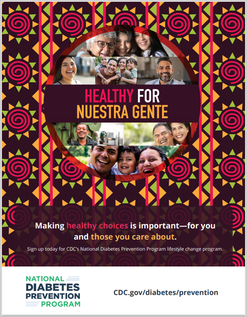 The contributions of Hispanic and Latino people have been so important to the success of our nation. Hispanic Heritage Month is a chance for National Diabetes Prevention Program (National DPP) to celebrate your community, strength, and resiliency during troubling times. While the accomplishments and strengths of Hispanic and Latino communities are not limited to one month a year, this is a chance to spotlight nuestra gente. This has been a tough year and a half, but through the hard times, nuestra gente has shown resiliency, strength, and hope. Through the COVID-19 public health emergency, we have learned the importance of personal health and community support in making healthy choices. Family and community are stronger when each individual takes care of themselves and their health. We’re in this together to live healthier all year long, and National Diabetes Prevention Program (National DPP) is here to help. Many people struggle to manage their health. According to the Centers for Disease Control and Prevention (CDC), 88 million US adults have a condition called prediabetes, meaning they have higher blood sugar levels than normal, but not yet high enough to be diagnosed as type 2 diabetes. But did you know that for Hispanic or Latino adults, the number of diagnoses is higher than for other groups? For Hispanic or Latino adults, 35% have prediabetes, and 50% are expected to develop type 2 diabetes, which is 10% higher than average. Having good health impacts all you do – and those around you. Type 2 diabetes can put limits on family and community activities and the time you get to spend together. Our theme for this Hispanic Heritage Month is nuestra gente, recognizing the importance your loved ones have in your life and on your health. You’ve made sacrifices for your family and community—now it’s time to take care of yourself so you can keep taking care of those you love. Let CDC-led National DPP help you to prevent type 2 diabetes so you can be around longer for those you love. We know it can be hard to take time for your own health – it might even feel selfish – but when it seems like it’s not worth the effort, remember that building a healthier future for yourself sets an example for coming generations. This helps ensure that type 2 diabetes is not a part of your family legacy, getting in the way of the wonderful traditions you enjoy most. You can learn about your risk for prediabetes by taking the CDC’s Prediabetes Risk Test. CDC’s National Diabetes Prevention Program (National DPP) is here to help adults with prediabetes learn to prevent or delay type 2 diabetes. We offer the National DPP lifestyle change program, which focuses on eating healthier foods, getting more physical activity, and managing stress to lower the risk for type 2 diabetes and for better health overall. The lifestyle change program is built around group sessions because you don’t have to take this journey alone. With the support of your peers and trained Lifestyle Coaches, you’ll find the habits that work for you and your family and still allow you to enjoy beloved foods and traditions. Lifestyle Coach Elvia Alcala says the program is designed to help you make small yet lasting changes. “As Hispanics, we are used to eating chicken, rice, beans, fries, and tortillas, and in many cases we don’t include vegetables, salads, and fruits. That’s why one of our goals with the program is to help participants see that if they make changes in what they eat, their health will improve and they will live better. Small changes can make a big difference.” With coaches like Elvia, CDC-led National DPP’s program is here to help you get healthier. The tips you learn will not only improve your health but can also be an opportunity for your whole family to get healthier together. Involving those you love will give you the motivation to get going, knowing that you’re doing this for your people and with your people. So what’s left to stop you? Don’t let type 2 diabetes define your future when you have so many worthwhile things to live for. Preventing health problems is important to ensure that you can keep on accomplishing your goals and leaving an even greater legacy for the future. Summertime and the livin' is easy; with relaxed routines and days filled with fun outdoor activities, vacations, and extra time with friends and family. As the end of summer approaches and families return to more work and school commitments, it’s time to return to healthy routines.
Along with planning carpools and scheduling meetings and after school activities, think about how you’ll build in time for your health. How can you keep the fresh fruit and veggies you enjoyed over the summer part of fall and winter menus? Can you walk while your children or grandchildren participate in sports or band practice? Take this opportunity to plan ahead and set your personal goals to establish some healthy habits before the fall season rolls around. Creating healthy habits and adding them into your day-to-day life can make a huge positive impact on your health. According to the Centers for Disease Control and Prevention. (CDC), 88 million US adults—more than 1 in 3—have prediabetes, a condition where a person’s blood sugar levels are higher than normal, but not high enough yet for a type 2 diabetes diagnosis. Prediabetes puts you at increased risk of developing type 2 diabetes, heart disease, and stroke. If you have prediabetes, you can reduce your risk for developing type 2 diabetes by adopting healthy habits into your daily routine, such as eating meals with more fruits and vegetables, getting regular physical activity, and sleeping enough each night. National Diabetes Prevention Program (National DPP) can help you learn more about how to stick to these healthy habits and reduce your risk of developing type 2 diabetes. In the program, participants work with a trained Lifestyle Coach and other participants to encourage each other along the way. Making small adjustments in your daily routine can lead to a healthier lifestyle. Here are some helpful tips to get you started as fall approaches and schedules get busier:
Take some time before the summer ends to understand your risk for type 2 diabetes and learn how you can prevent or delay it by taking steps to change your lifestyle. Creating healthy habits in your life can ensure you live healthier all year long. |
The National Center for Farmworker HealthImproving health care access for one of America's most vulnerable populations Archives
July 2024
Categories
All
|
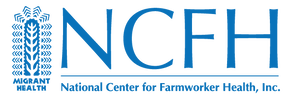


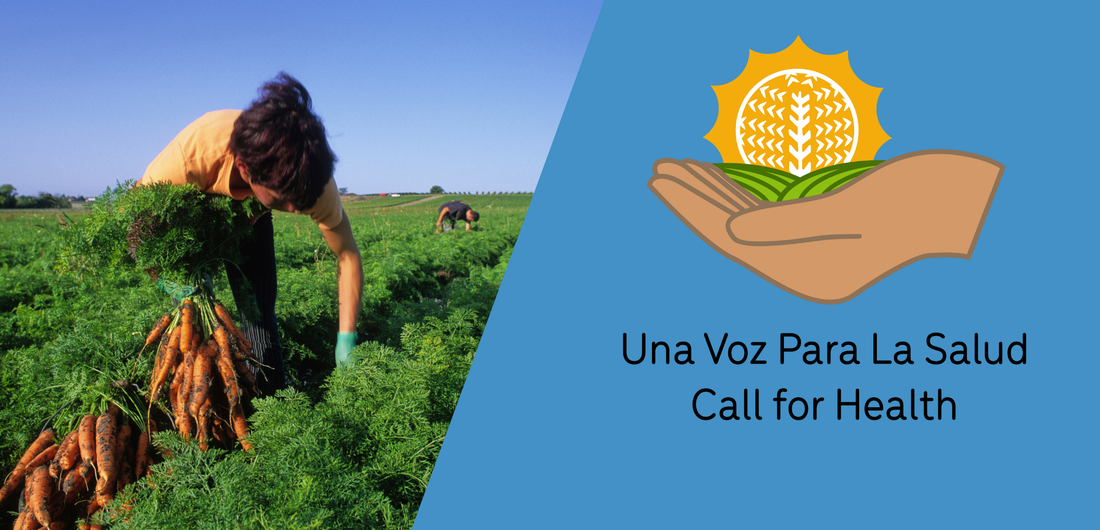

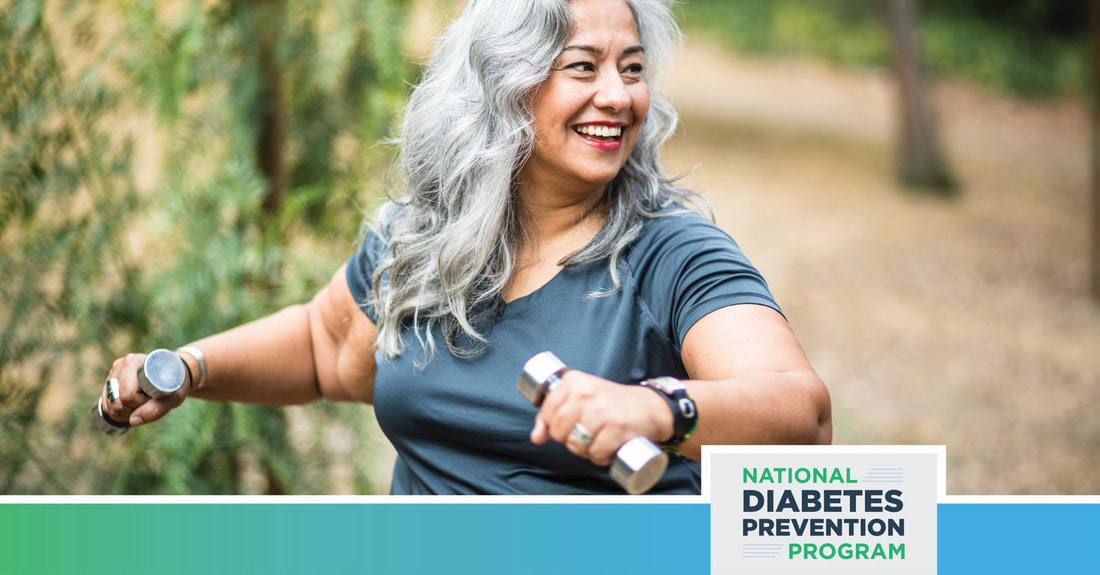
 RSS Feed
RSS Feed